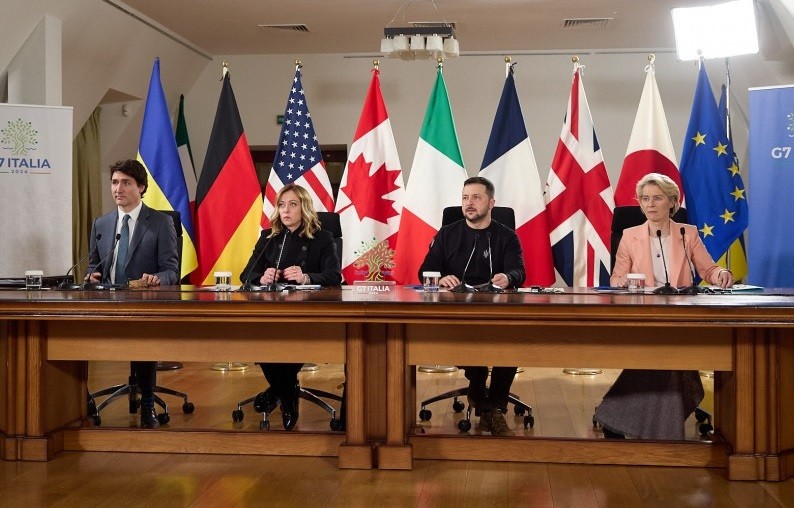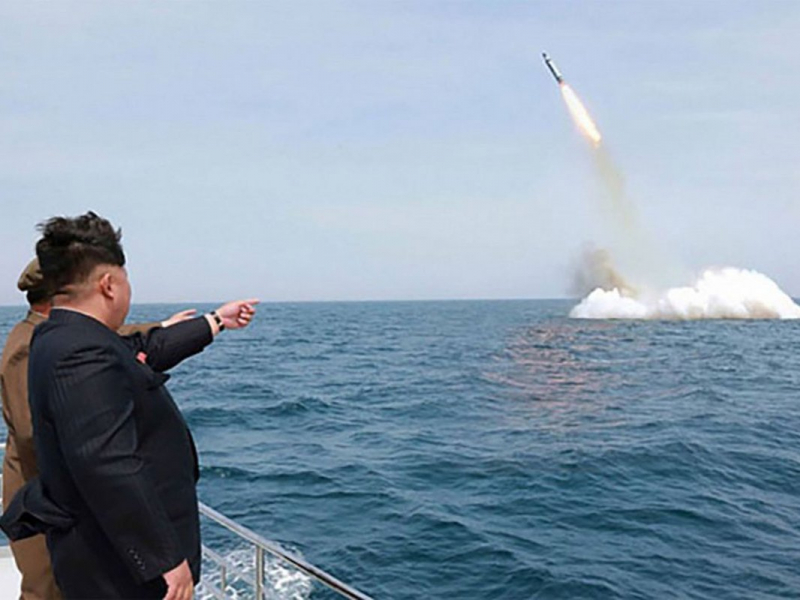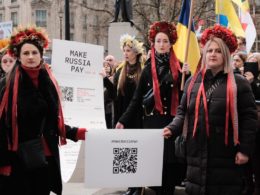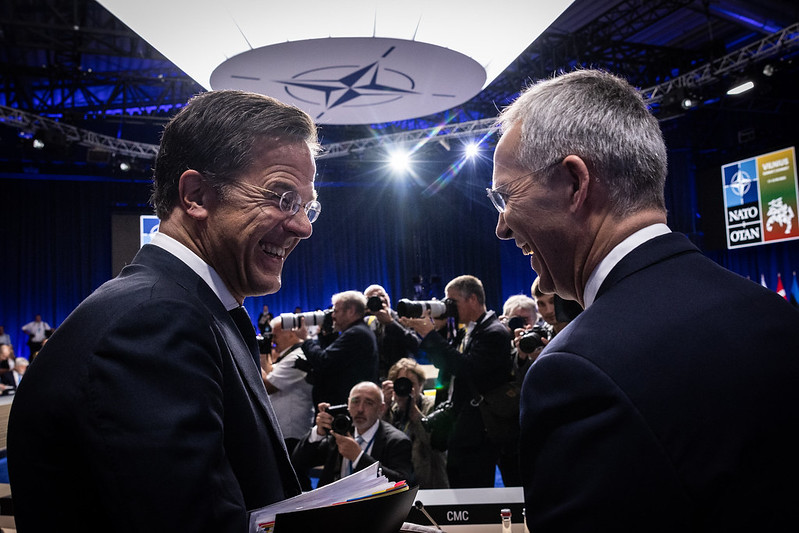Leaders of the Group of Seven (G7) countries promised continued financial and military support for Ukraine after holding an online summit on 24 February, the second anniversary of Russia's full-scale invasion of Ukraine.
The support comes at a sorely needed time, as the USA's Ukraine support package remains stuck in Congress, its fate unclear.
President Zelenskyy participated via videolink from Kyiv. He addressed the G7 meeting, saying “The world feels that Putin can lose the war.” Italian PM Giorgia Meloni and Canadian PM Justin Trudeu also participated in the meeting from Kyiv, where they convened with other dignitaries.
World feels that Putin can lose the war, Zelenskyy told at G7 meeting
"When the world's leading democracies are truly determined, this determination will overcome all challenges. And we have already achieved much, and the world feels that Putin can lose the war.
And when he… https://t.co/wgd6bkFXZG
— Euromaidan Press (@EuromaidanPress) February 24, 2024
The G7, comprising Canada, France, Germany, Italy, Japan, the United Kingdom, and the United States, vowed to keep sanctions pressure on Russia over its full-scale invasion of Ukraine.
"We will continue to deprive Russia of revenues to wage its war against Ukraine and hold to account third countries that support Russia’s war,"
the leaders said in a statement, specifically mentioning entities that help Russia's defense base.
Particularly, they named North Korea, which has transferred ballistic missiles to Russia in violation of UN sanctions, Shahed kamikaze drone producer Iran, and China, whose companies have sold dual-use goods to Moscow.
The group welcomed the European Union's decision to hold excess profits from frozen Russian assets, encouraging "further steps to use these in line with legal obligations and frameworks." The leaders added: "Sovereign Russian assets within our jurisdictions will remain frozen until Russia pays for the damage inflicted on Ukraine."
The EU Council’s decision on 12 February to isolate frozen Russian funds opens up the possibility of using profits from more than $250 billion in frozen assets of the Russian Central Bank to fund Ukraine’s post-war reconstruction.
Dignitaries converge in Kyiv on second anniversary of full-scale invasion
The leaders also pledged never to recognize Russia's attempted annexation of Ukrainian territories.
"We will never recognize so-called ‘elections,’ past and future, held by Russia on territory of Ukraine, nor their results,” they said.
They also promise to make efforts to bring Russia and its citizens to justice for crimes against Ukraine, including through a special tribunal, and to release civilian prisoners and prisoners of war illegally held by Russia.
The G7 committed to covering Ukraine's budget needs in 2024, welcoming the EU’s 4-year 50 billion euro macro-financial aid package. The leaders noted that Japan will provide fast-track budget support in Q1 2024, while Canada just announced new assistance.
“We stand ready to provide further support to cover Ukraine’s residual 2024 financing gap,” the G7 statement read. The group also recommitted to Ukraine's long-term reconstruction, with new conferences planned in Berlin and Rome.
Macro-financial assistance to Ukraine in 2024 is in trouble due to the delay in the approval of additional funding to support Kyiv in the US Congress. It is possible that the final decision will include only military support.
Ukraine is dependent on macro-financial assistance from its partners, as it spends the vast majority of its domestic revenues on military purposes.
Earlier in the day, Ukraine signed security deals with Italy and Canada to boost defenses against Russia.
Related:
- Ukraine squeezes every last drop for defense in 2024 budget, Russia still 2.5x more
- EU adopts new measures to isolate frozen Russian funds
- Mapping North Korea’s discreet artillery ammo route to Russia
- Analyst: Russian oil money turning North Korea into “ideal military factory”





